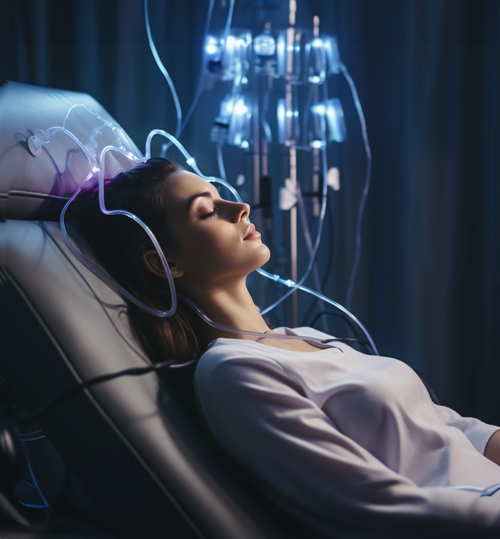Addiction
What Is Addiction?
What Causes Addiction?

The Cycle of Addiction
The Impact on Physical and Mental Health
Getting Help: Addiction Recovery
Getting help is super important. If you or someone you know is dealing with addiction, reaching out to a healthcare professional or an addiction specialist is a great first step. They assist in figuring out the best treatment plan.
Treatment options vary but often include detox (if it’s a substance addiction), therapy to address the reasons behind the addiction, and sometimes medications to reduce cravings or ease withdrawal symptoms.

How TMS Therapy Helps
The bottom line is, addiction can happen to anyone, but with the right help, like therapy, support groups, and potentially even TMS therapy, recovery is absolutely possible. It’s all about finding what works best for you or your friend and sticking with it to break free from the grip of addiction.
Try TMS Therapy With Brain Health Center
Take that first step toward hope and healing by considering TMS therapy as part of your addiction treatment plan. TMS has shown promise in targeting the brain’s addiction-related regions, helping to reduce cravings and promote better impulse control.
It's Time To Heal
For many of our friends seeking wellness, TMS is an incredible solution. Get started now with our team.
